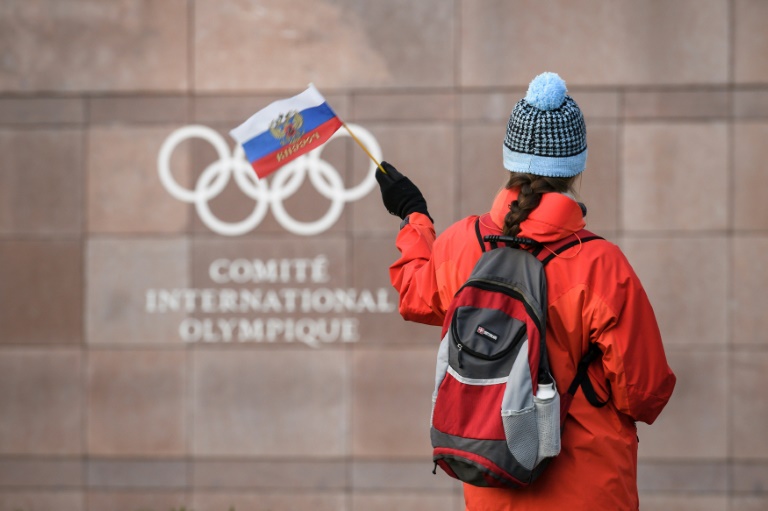IOC rejects Russian demand that its athletes compete without restrictions

Ukraine has threatened to boycott the 2024 Paris Olympics if Russian competitors are allowed to take part
Moscow – The International Olympic Committee on Tuesday rebuffed a Russian demand that its athletes be treated the same as those of other countries, in a growing row over Russian and Belarusian participation in the 2024 Paris Games.
“The sanctions against the Russian and Belarusian state and governments are not negotiable,” an IOC spokesperson said.
The debate had intensified since the IOC said last week it was examining a “pathway” for Russians to compete in Paris, probably as neutral athletes rather than under their national flag.
That sparked a furious response from Kyiv, with a Ukrainian presidential aide accusing the IOC of being a “promoter of war”.
Ukraine threatened to boycott the Paris Games if Russians were allowed to take part.
On Tuesday, Stanislav Pozdnyakov, the head of Russia’s Olympic Committee, argued for full participation.
“Russians must participate exactly on the same conditions as all other athletes. Any additional conditions or criteria are unwelcome, especially any that have political overtones, which are completely unacceptable for the Olympic movement,” Pozdnyakov said, according to Russian news agencies.
Russia and its ally Belarus, which allowed its territory to be used as a launchpad when Moscow started its offensive in Ukraine last February, have been sidelined from most Olympic sports since the conflict began.
Pozdnyakov said his organisation welcomed efforts by the IOC to allow Russian athletes to compete.
“But as for additional conditions, we strongly disagree. The Olympic Charter states that all athletes must participate on an equal footing,” he added.
The IOC quickly pushed back saying the sanctions against Russia and Belarus had “been unanimously confirmed by the recent Olympic summit meeting on December 9”.
Those sanctions included “no flag, anthem, colours or any other identifications whatsoever of these countries being displayed at any sports event or meeting, including the entire venue”, said the IOC spokesperson.
Ahead of the IOC response, Ukrainian President Volodymyr Zelensky said Russia’s participation in the Paris Olympics would amount to showing that “terror can allegedly be something acceptable”.
Last week, Zelensky said he had invited IOC president Thomas Bach to visit the frontline Ukrainian city of Bakhmut, “so that he can see for himself that neutrality does not exist”.
Ukraine’s Foreign Minister Dmytro Kuleba said on Monday that of the 71 medals that Russian competitors won at the 2020 Tokyo Olympics, 45 went to athletes who were members of the Central Sports Club of the Russian Army, or CSKA.
“The army that commits atrocities, kills, rapes, and loots,” Kuleba said. “This is whom the ignorant IOC wants to put under (the) white flag allowing (them) to compete.”
– ‘Russian propaganda efforts’ –
Latvia’s Foreign Minister Edgars Rinkevics said on Tuesday his country opposed any participation of Russian athletes at the Paris Olympics, saying it would be “immoral and wrong”.
After a meeting with his counterparts from the Baltic states and Poland in Riga, Rinkevics called for Russia to be isolated as long as it continues its offensive in Ukraine.
“As all tyrannies do, it uses sports for political purposes. IOC should not become complicit in Russian propaganda efforts,” Rinkevics said.
The Olympic Council of Asia, however, last week offered Russian and Belarusian athletes the chance to compete in this year’s Asian Games, arguing that “all athletes, regardless of their nationality or the passport they hold, should be able to compete in sports competitions”.
That was a significant move because it would allow athletes from those two countries to achieve qualifying standards they would need to compete in Paris.
The IOC reiterated last week that the international federations for each Olympic sport were “the sole authority for its international competitions”.
